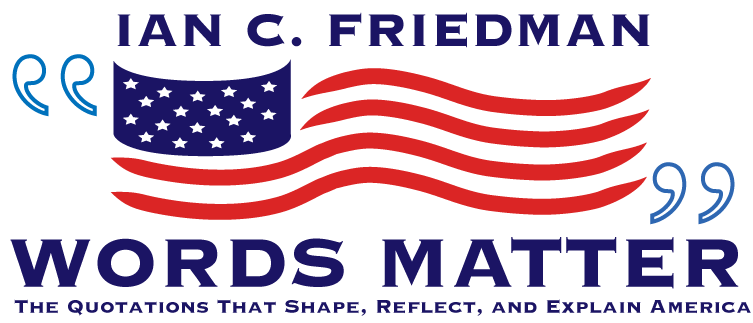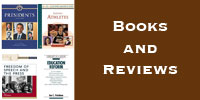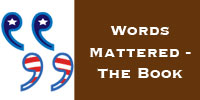“History is to the nation as memory is to the individual.” – Arthur Schlesinger, 2007
 While researching great quotes about history, I found an essay written by American historian Arthur Schlesinger published in the January 1, 2007 edition of the New York Times. Entitled “Folly’s Antidote”, the op-ed is a powerful critique of the failure to apply historical understanding to national policy and an expression of support for constantly investigating history and–when making new discoveries–for regularly revising our historical conceptions and knowledge. Wrote Schlesinger, “History is never a closed book or a final verdict. It is forever in the making.”
While researching great quotes about history, I found an essay written by American historian Arthur Schlesinger published in the January 1, 2007 edition of the New York Times. Entitled “Folly’s Antidote”, the op-ed is a powerful critique of the failure to apply historical understanding to national policy and an expression of support for constantly investigating history and–when making new discoveries–for regularly revising our historical conceptions and knowledge. Wrote Schlesinger, “History is never a closed book or a final verdict. It is forever in the making.”
The most compelling point in the article was included in the opening paragraph. Better than anything I have read, it explains why history is so interesting when it is presented in ways that are accessible and meaningful, which sadly, is often not the case in classrooms, textbooks, and other more commercial sources. When history is truly personalized and clearly connected to an individual’s experience that is vibrant and memorable, it naturally draws greater curiosity and understanding.
It is useful to remember that history is to the nation as memory is to the individual. As persons deprived of memory become disoriented and lost, not knowing where they have been and where they are going, so a nation denied a conception of the past will be disabled in dealing with its present and its future. “The longer you look back,” said Winston Churchill, “the farther you can look forward.”




